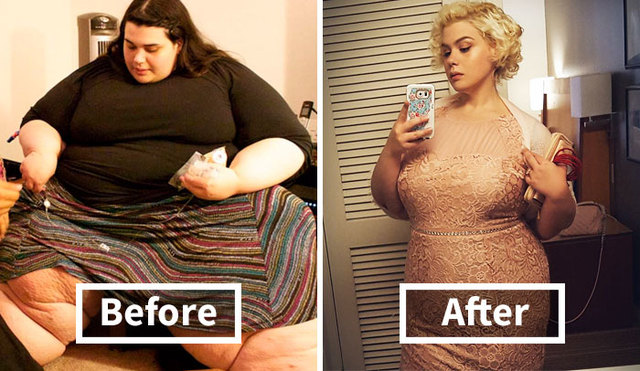What Time Of The Day Do You Burn The Most Fat?


Introduction
The article emphasizes eating during the proper stage of digestion as a key to fat burning. It recommends delaying or skipping breakfast, focusing on liquids, and gradually transitioning to healthier habits. The author shares a personal experience of losing 21 lb. in two months by adopting this approach. The article introduces a shortcut to weight loss, outlining strategies like postponing the time you eat and working out in the proper stage of your digestion to burn fat.

Eat In The Proper Stage Of Your Digestion
Hopefully, you’ve started delaying your first meal by filling up liquids to push back your eating time. Now, it’s crucial to eat during the right stage of digestion – the key to burning fat! Making wise food choices is beneficial, but it might require a lot of mental energy and willpower. To avoid feeling overwhelmed and giving up, we suggest a transition diet, making gradual changes over time for significant results. This way, you won’t need to make too many quick changes, ensuring a smoother journey to a healthier you.
My Experience
What worked well for me was getting a large sweet tea from McDonald’s every morning. I filled four cups with ice and kept refilling them with the sweet tea during the breakfast hours. This kept me satisfied until 7:00 or 8:00 at night, and during this time, I continued to eat the same junk food as before.
I followed this routine for several weeks, eating during the proper stage of digestion without specifically focusing on my weight. After some time, I noticed my clothes felt looser, but I wasn’t regularly checking my weight. One Monday, while at my friend’s timeshare, I saw myself in a large mirror and was shocked by the weight loss around my midsection. When I weighed myself at home, I had lost 21 lbs in two months without “dieting.”
According to an article on Mayoclinic.org, generally, to lose 1 1/2 pounds a week, you should cut 500 to 750 calories daily. However, eating during the proper stage of digestion can expedite this process. The same article indicates that burning 3,500 more calories than you consume is needed to lose 1 lb.
That’s a lot of work for just 1 lb. however, there is a short-cut.
The Short-Cut To Losing Weight
How did I manage to average 10 lbs. in the same time frame when most people lose 4lbs.? I understood the timing and methods of eating to maximize fat burning.
Here are the strategies:
- 5 to 6 hours after eating: If you engage in strenuous activity within this time frame, you’re burning the calories from the food you just ate, not stored fat.
- 6 to 8 hours after eating: When you work out, the earlier consumed food is digested, and you start burning glycogen (sugar).
- 8 to 12 hours after eating: This is the stage of burning fat, even during rest you are burning fat. Understanding body mechanics allows you to tap into this power without altering your diet or exercise routine. However, as part of the transition diet, we recommend gradually adopting healthier habits over time.
As mentioned earlier, our digestion has 3 stages, and delaying eating hours in the day increases the benefits. Initially, skipping breakfast may suffice, and with improved willpower, you can eventually delay eating until the typical dinner hours. Over time, you’ll be able to extend the hours you postpone eating.
Eating In The Proper Stage Of Your Digestion = Intermiten Fasting
When you delay the time you eat by eating in the proper stage of your digestion, it’s called intermittent fasting. While you sleep, you naturally go through the longest period of the day without eating or drinking. Upon waking up, many of you have the habit of breaking this fast with breakfast.
The term “breakfast” comes from the moment you break your fast, as explained in Dr. Eric Berg’s video, “What Really Happens When We Fast”:
ATTENTION! The following video is provided by a 3rd party vender. If the video is no longer available it is because the owner of the video or Youtube removed the video from their servers. we apologize for any inconvenience.
During fasting, it’s advisable to postpone eating for 12, 18, or at most 24 hours. Periodically, you might consider extended fasting for 24, 48, or 72 hours. After 24 hours, growth hormones spike, aiding in fat burning, anti-aging, joint healing, and protein production. Your body enters autophagy, repairing itself and addressing health issues. Beyond 24 hours, your body shifts to using ketones as an alternative fuel, as glycogen is depleted.
Extended fasting may initially be challenging, particularly in the first 24 hours. However, after this point, ketones suppress appetite and reduce junk food cravings. Additional benefits include decreased inflammation, improved digestion, and enhanced heart and brain function due to new brain cell production. The most significant benefits are experienced after 48 and 72 hours of prolonged fasting, recommended periodically.
To start, delay eating until after the third stage of digestion for maximum fat-burning benefits, as fat is the most efficient energy source.
Conclusion
The diet and fitness industry has been misleading you for too long. While they emphasize diet, exercise, and weight loss supplements, much of their advice can actually undermine your success. For instance, studies show restricting certain foods to lose weight may lead to overeating by 133%.
Imagine a world where you can eat what you want, stay satisfied, and still witness those scale numbers drop. Seems too good to be true, doesn’t it? Well, it’s not. Visit http://eatwhatyouwanttoloseweight.com, and I’ll provide the evidence to help you break free from the diet and fitness industry’s mind games.











